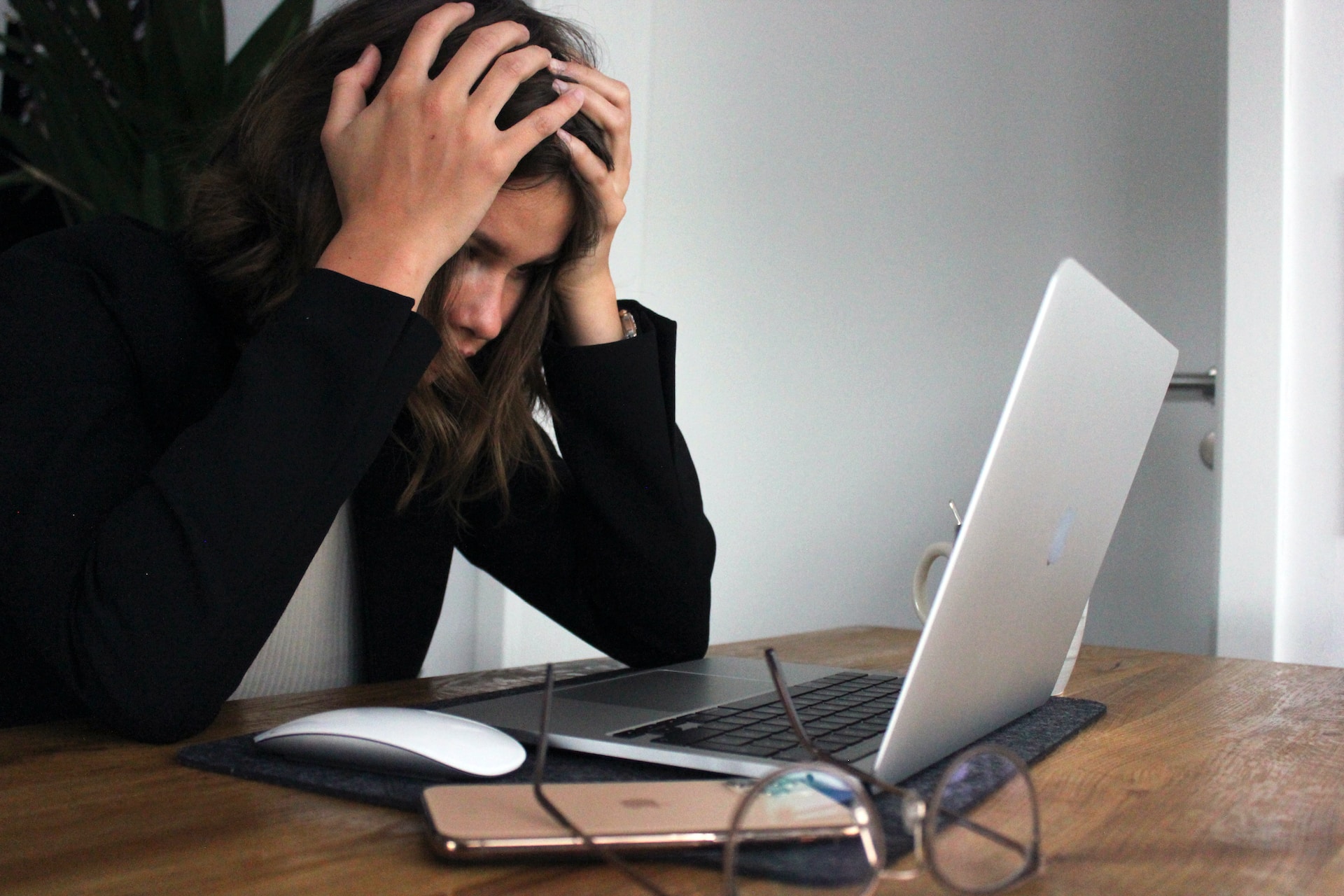We can talk at length (and have!) about the advantages and benefits of outsourcing. But what about outsourcing risks?

Outsourcing is not without its downsides. We at Outsource School aim to provide honest answers. We also want to give you a complete picture of what your outsourcing journey can look like. So that’s what we are going to do in this post.
We’re going to get into the most common risks associated with outsourcing. These are barriers that make most people hesitant to go down this road. While these may be very real stumbling blocks, we won’t leave you without hope!
We’re also going to share some helpful tips and guidelines to mitigate these risks. By the end we hope you’ll have a clearer picture of the track ahead of you and the right routine to help you run through it.
Risks of Outsourcing
1. Loss of Control
Almost any business owner can relate to this feeling. A business can feel like your baby. It’s hard to give even a little control to someone else. This is especially true if that someone lives in a different state or several miles away from you!
The procedures and methods used to care for that business task or process might not be to your liking. There may not necessarily even be anything wrong with the way they do things. However, outsourcing means you have less opportunity to keep an eye on every single detail. If you are a meticulous person who wants to be intricately involved, outsourcing may not be an attractive solution.
2. Communication Barriers

Ever read an email, chat, or text message and completely misread the tone? Ever got a call from a relative but their network connection was choppy and you could only catch a few sentences?
Or have you ever visited a country where they speak a different native language from yours? Maybe you tried buying something or asking a question and it took a while before you came to an understanding.
Well, these situations are not uncommon to the outsourcing experience.
Virtual meetings have gotten better, but you can’t always guarantee a stable connection on their end. Sometimes English is their second language, and it’s hard to get the point across clearly.
Slow response times can be one of the risks of outsourcing that is most frustrating. Sometimes there are communication delays because of the time difference and the project gets held back. You might end up pushing deadlines, losing face, or worse, losing a client.
3. Cultural Differences
Sometimes communication barriers are a cultural thing. This can be cultural literally in terms of the country or region or in terms of company or business culture.
Some countries are very straightforward in their communication, which may sound rude to those who have a different cultural style. Some may have customs that affect how they interact with those younger or older than them. Others might give short answers without elaborating unless asked specific questions. Some might solve problems from a different angle than you.
This sort of stuff can lead to frustration even though you are trying to solve the same problem.
Some outsourcing companies may also have different company cultures than yours. You might value getting work done earlier than the deadline. You might do this to account for any potential errors, improvements, or other changes. However, the outsourcing company might not have that same value and give it to you on the deadline. (Which is late in your books.)
This can lead to culture shock and adjusting can take time, effort, and other resources.
4. Difficult to Find the Perfect Fit

Outsourcing can sometimes feel like shopping for a pair of pants. You take your measurements and even bring a good fitting pair along with you to compare. When you get there, you may find that they have different sizing mechanics, different materials, or wrong proportions. Maybe everything fits right in terms of size, but the pants don’t have back pockets. (And you REALLY like back pockets!) You may just need to go to a different store or look at a different brand.
The fact of the matter is this. Unless you build it from the ground up, piece by piece, it won’t be exactly what you’re looking for. It’s very rare that an outsourcing solution will meet every requirement or preference without making an effort.
You need to be ready to make a few adjustments here and there. Sometimes it’s your expectations that need adjusting!
5. Privacy and Security Concerns
This is probably one of the most alarming outsourcing risks and why a lot of people remain hesitant. Let’s be frank. The risk for data leakage from within your business is never 0. That number gets higher when you allow third parties access to company information. You must simply take greater care to restrict access. Make sure you can trust people before you give them greater power.
6. Lack of Experience with Remote Teams
Managing a virtual team poses unique challenges. You need to think about:
- Remote onboarding
- Communication channels
- Virtual project management
- Performance monitoring
- Payroll
If you don’t have the experience to manage remote teams well, you could end up with more problems
These can be a lot to think about. To the uninitiated, this could easily overwhelm and discourage them from trying outsourcing.
7. Transition Challenges
When giving the reins over from in-house to third party hands, you need to evaluate the outsourcing benefits and risks. It’s true you might be freeing yourself and your team from that task. However, a change of management is pretty major.
Not only do you have to consider onboarding, but also the rate at which you hand tasks over. For instance, say you’re moving personnel over to another area of operation. That transition can be difficult to manage, especially if you aren’t sure the third party will deliver.
8. Failure to Deliver or Constant Delays

That brings us to this point. While this is one of the easier outsourcing risks to mitigate, it’s still a fear that holds people back.
We already talked about communication delays. However, there are other possible factors that could delay delivery including:
- Equipment malfunction or breakdown
- Natural disasters
- New regulations in the country of the outsourcing company
Other possibilities could simply be a lack of professionalism or an overstatement of their ability to deliver.
9. Quality of the Outsourced Product
Quality control measures are much harder to implement, maintain, and monitor when you outsource. This is doubly true if you outsource internationally. Unless you have a trial run or they have sample work output to show, all you have is their word. Of course, you can set up a trial period and see how it goes. You would have to do a probation period anyway for anyone you hire, overseas or not.
10. Geolocation Issues
This refers to problems related to a person’s physical location. For instance, the freelancer could live in an area prone to flooding and landslides. This can cause frequent power outages or network connectivity issues. The time zone itself might be an issue if you don’t talk about what time of day you expect them to be available. Make sure you know the conditions before you commit to working together.
11. Intellectual Property Concerns
This is similar to our point on privacy and security. Your patents might be protected, but other processes and trade secrets might not be. Companies and individuals alike could create copies and sell your ideas. They can do shady things that fall in the gap between what is infringement and fair use. To be fair, this can happen with anyone you hire, from anywhere. Hiring overseas just means it’s harder for you to catch them and take steps to prosecute.
How to Manage Risks When Outsourcing

All these risks may seem intimidating, but don’t worry! Below are some practical ways you can mitigate these risks. Most of them are really simple adjustments, too. You just need to get used to the new environments that outsourcing opens you up to. Then you can take the steps to stay insulated.
1. Thorough Selection
Do. Your. Research. Better yet, only hire from reputable agencies and platforms. Then do your due diligence among the candidates there. This way, you have a hiring partner who can guarantee a safer experience.
You can avoid staring in the next outsourcing horror story by simply taking the time to explore your options. Check the candidates’ reputations. Take advantage of social proof like ratings, reviews, and comments.
2. Setting Clear Expectations
When you’ve done screenings before you get into the interviews, make sure the job description is clear. List your roles, responsibilities, goals, objectives and everything related to the tasks and process. It’s better to over explain than to under explain. When you know exactly what you need, you’ll get a better idea of what you want out of a hire.
3. Spotting Red Flags
While researching and interviewing, check to see if there are any alarming reviews or behaviors. Check to see if their answers are consistent with what they say on other channels like their website or socials.
4. Regular Communication

Check in with your remote team regularly. Make sure to set up clear communication channels and guidelines. From as early as the interview, ensure that your expectations are understood.
5. Performance Monitoring
These check-ins can serve as your progress checks also. You can also use project tracking and management software. You can use this software to communicate with your team, assign tasks, monitor deadlines, and make sure everything is running smoothly.
6. Data Security Measures
Have them sign legal documents that protect your data, such as an NDA (non-disclosure agreement). Keep sensitive data close to the chest. Operate on a “need-to-know” basis. Do this and you’ll more likely avoid outsourcing risks related to data leaking or other related fraudulent behavior.
7. Building Relationships
This is an important step that many can overlook. This includes building relationships with other businesses and your outsourcing partner.
With business partners, you can ask their advice and recommendations on outsourcing companies.
With the outsourcing company, it’s all about trying to find partners and not just workers. When you treat outsourced staff like your own, they are more likely to treat your business the same.
Don’t forget to conduct temperature checks even with outsourced staff. An unhappy worker will not be putting their best foot forward.
8. Building Your Company Culture and Values They Share
It’s so crucial to build a healthy, collaborative culture between in-house and outsourced staff. This is one of the best ways to mitigate outsourcing risks.
One helpful tip is to look at their mission and vision statements, values, and objectives. This gives you an initial idea if you would work well together based on what you deem to be important.
9. Proper Management
This is true both on your end and on the end of the third-party service provider. Your experience with outsourcing benefits and risks really depends on how well project managers handle relationships and projects as a whole.
If you don’t have experience managing an outsourced project, you have options:
- ask people who have experience for advice
- hire a manager
- train someone
- rely on your outsourcing partner to help you out
Outsourcing Strategies
The three main outsourcing strategies are onshoring, nearshoring, and offshoring. You can learn more about them by clicking that link. Basically, onshoring is hiring a company from the same country as your business. Nearshoring and offshoring involve hiring from outside your locale and internationally.
What Is Outsource School?

Outsource School helps you to unlock the potential of virtual assistants and accelerate your business growth.
This is the exact system Outsource School’s founders, Nathan Hirsch and Connor Gillivan, used to go from zero to 8 figures and 40+ virtual assistants with an exit in 2019.
Since being founded in 2020, Outsource School has helped 1,000+ business owners hire 2,000+ virtual assistants for their companies.
Schedule a free sales call to learn more
Free resources you might like:
- Outsource School Case Study: How We Scaled to 45+ VAs and 8 Figures in Revenue
- Free VA Calculator | See How Many VAs You Can Afford
- Free Training on 5 Keys to Working With VAs
- Learn Outsourcing 101 | Guides, Downloads, and Checklists
Conclusion
And that’s our outsourcing risk list!
Our goal for this article was to help give you the routines and practices you need to outsource successfully. We hope we helped give you the legs you need to jump these hurdles with ease. Now, onwards toward crossing that finish line to business success!















 This is a great example of what I mentioned above. These parts of blog posts and articles can use the practiced touch of a copywriting virtual assistant. Of course, headlines and subheadings apply to other types of content, too. They are used in product descriptions, social media posts, landing pages, and almost every kind of text content.
This is a great example of what I mentioned above. These parts of blog posts and articles can use the practiced touch of a copywriting virtual assistant. Of course, headlines and subheadings apply to other types of content, too. They are used in product descriptions, social media posts, landing pages, and almost every kind of text content. Persuasive writing is what copywriters do best. However, there’s additional skill involved in creating newsletter content and email campaigns. Email is one of the most underrated marketing tools that businesses have at their disposal. Getting your email marketing done right can boost your business quickly and sustainably over the long term.
Persuasive writing is what copywriters do best. However, there’s additional skill involved in creating newsletter content and email campaigns. Email is one of the most underrated marketing tools that businesses have at their disposal. Getting your email marketing done right can boost your business quickly and sustainably over the long term. Like product descriptions on website landing pages, eCommerce platforms require a specific type of copy to be effective. A virtual assistant who knows the platforms you’re on and what their customers like can be a valuable asset.
Like product descriptions on website landing pages, eCommerce platforms require a specific type of copy to be effective. A virtual assistant who knows the platforms you’re on and what their customers like can be a valuable asset. Market research is not the most glamorous of marketing tasks. It can get really tedious! However, a copywriting virtual assistant can help you, and they can actually do it better than a researcher can. This is because they know what details about your targets are vital to create successful copy – like consumer pain points and preferences.
Market research is not the most glamorous of marketing tasks. It can get really tedious! However, a copywriting virtual assistant can help you, and they can actually do it better than a researcher can. This is because they know what details about your targets are vital to create successful copy – like consumer pain points and preferences. When you’re running campaigns, you cannot do without content calendars that reflect well thought out strategies! And who better to set all this up than the one who knows how to implement it all? You got it, your all-star copywriting virtual assistant can come to the rescue once again. But don’t forget, these VAs have unusual skill levels, so you need to be prepared to pay higher than average rates.
When you’re running campaigns, you cannot do without content calendars that reflect well thought out strategies! And who better to set all this up than the one who knows how to implement it all? You got it, your all-star copywriting virtual assistant can come to the rescue once again. But don’t forget, these VAs have unusual skill levels, so you need to be prepared to pay higher than average rates.



























